
Caring for Seniors: Benefits of Outdoor Activities for Seniors
May 10th, 2022aging in place, Alzheimer's Care, Caregiver Service, Dementia Care, Elderly Care, In Home Care, Long Term Care, Outdoor Activities for Seniors, Polish Care Services, Senior Care Services, Summer Activities for Seniors, Uncategorized,
The ability to enjoy various outdoor activities is highly beneficial to the elderly. However, for senior citizens to be adequately cared for, there need to be a wholesome approach which involves the caregiver agency its professional services team, and if at all possible their loved ones.
Polish Care Services is among the best service providers in caring for the elderly and its professional caregivers can assist with seniors participating with outdoor activities for seniors. Furthermore, there are specific outdoor activities which are effectively beneficial and can easily accommodate seniors at all levels of activities. These activities are available during springtime and summertime, including walking, gardening, fishing, and golfing, among many other safer activities for seniors.
The benefits of outdoor activities are well documented to suit people of all age groups. However, several of these benefits are designed to mitigate several challenges that people face along with ageing. For instance, among the significant challenges that face the seniors, particularly among the women, is bone health, which is positively impacted by sufficient levels of Vitamin D. For a person to acquire all the vitamin D that the body requires to maintain stronger bones and optimize the immune system, there is the requirement for exposure to the sunlight approximately 15 minutes each day. Scientific studies have revealed that spending time outside is impactful in boosting the immune system. The people who spend more of their time outdoors have more developed virus and cancer-fighting white blood cells than those who spend most of their time indoors.
Moreover, another practical benefit of the outdoors is that it can positively impact recovery time after an illness or an injury. Studies indicate that patients who spend more time outdoors, including those who stay in rooms with natural lights, get discharged sooner than those in rooms with artificial lights only. For elderly persons, it is more beneficial to get more exposed to the outdoors since prolonged stays or long-term care in healthcare facilities are associated with further complications capable of impairing the elderly’s health and wellbeing. Activities such as gardening, fishing, nature walks are among the summer activities that is beneficial in strengthening seniors’ bodies and minds.
Among the outdoor activities that stimulate and are effective for seniors’ emotional, physical, and mental well-being is walking. Walking with the elderly is a much-needed exercise and emotionally calming experience for seniors and caregivers too. Walking the elderly in the natural sunlight has proved to be a mood stabilizer with an increased mood of joy, contributing to a night of more restful sleep by altering the body’s internal clock. Walking is also one of the most accessible activities, which requires no extraneous equipment other than footwear. seniors may participate in their past times and can enjoy fun outdoors activities, including walking, gardening, golfing, and fishing with their companion caregivers.
Based on the physical level of the of the elderly, they may require different levels of outdoor activities. However, each senior person can enjoy at least one particular outdoor activity at a time. For instance, summertime is usually marked by safer activities sunbathing, cooking, playing games such as card games and other leisure activities, including reading books. These activities are done with the help of dedicated specialists passionate about helping seniors maximize their aging experience.
There is a myriad of activities that provide a variety of safer impactful activities which enhance the physical and emotional wellbeing of the elderly. For example, Gardening, walking and exercising are among the summertime activities recommended by Polish Care Services. For instance, Gardening is a simple act of relaxation technique for seniors and any other person striving to experience good moments for themselves. Please call Polish Care Services 860-255-8278 for details.
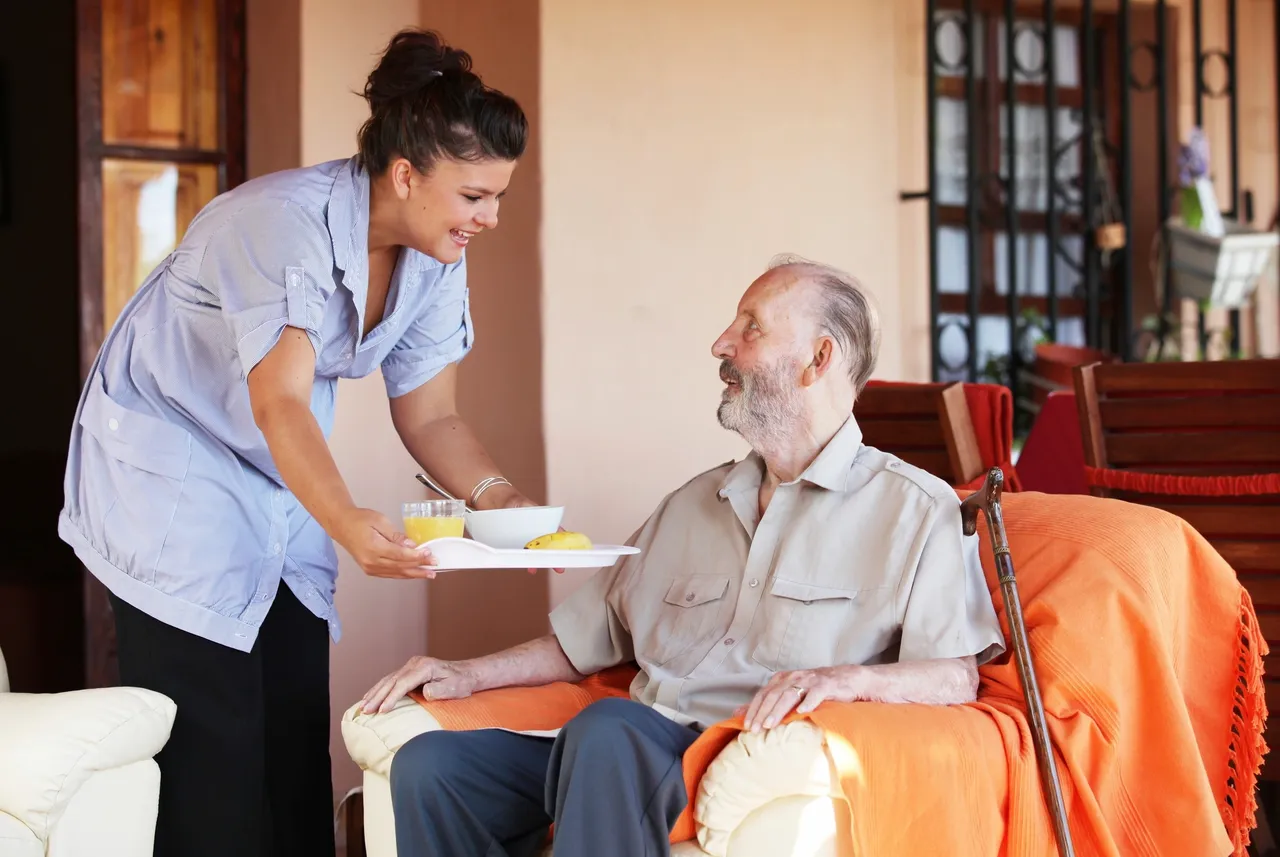
The Benefits of Becoming a Professional Caregiver
March 31st, 2022aging in place, Alzheimer's Care, Caregiver Employment, Caregiver job, Caregiver Service, Companion Caregiver, Dementia Care, Elderly Care, Hire CNA, Hire HHA, Hire PCA, Home Healthcare, In Home Care, Long Term Care, Polish Care Services, Senior Care Services, Spring Activities, Summer Activities for Seniors, Uncategorized,
The number of older adults over 65 is expected to grow in the next two decades to 80 million by 2040. Many seniors will need the assistance of professional caregivers as they age. So, what are the benefits of becoming a caregiver? This post outlines the benefits of being a caregiver for the elderly, what hourly and live-in caregivers do, and why becoming a caregiver is rewarding.
Why Become a Caregiver?
Getting older isn’t easy. At a certain point, simple tasks such as getting up and downstairs, getting dressed, and even preparing meals can be hard for older people to do. A professional caregiver helps to make life easier for their senior clients by helping them with those tasks. The caregiver and client might work together over many years and form a close and rewarding professional relationship.
What is Hourly Care?
Hourly care is just what it sounds like. Caregivers for the elderly are paid hourly to take care of clients. Working on an hourly basis can provide caregivers with a certain amount of flexibility, depending on how their schedule is structured and how many clients they might see on a given day. Some caregivers may work a full 8-hour shift with one client, while others may split their time between a few different clients throughout the day. Some clients might need a caregiver’s help every day for a set number of hours, while others need assistance for a few hours on set days.
What is Live-In Care?
Live-In caregivers will spend their time living with and caring for one specific client. They live in the home with the client and will generally perform any task from activities of daily living (ADLs) to meal prep, errand-running, and homemaking services. As part of their compensation, live-in caregivers receive room and board as well as meals to provide care to their clients. Typically, live-in caregivers can receive at least one day off if desired, and they can sleep a regular number of hours during the night. The specifics of a live-in care arrangement are worked out between the caregiving agency and the family.
Benefits Associated with Being a Caregiver
Professional caregivers can largely determine the number of hours that they want to work. If they prefer the routine that comes with working for one client, they can choose to do that. Other caregivers might prefer working with multiple clients throughout the day or working overnight. Caregivers also get to decide whether they would like to work full-time, part-time, or overtime, which is not available to people who are traditionally employed.
Caregivers can be pooled from various backgrounds and professions than certified nurses assistant (CNA), home health aide (HHA), personal care attendants (PCA). Caregiver agencies hires those trained in other fields such as customer service, civil servants, teachers, nurses, doctors and provide tools for development as a caregiver.
Caregiving agencies offer various benefits for caregiver jobs. Ongoing training for caregivers is one. Continuous training programs allow caregivers to improve their caregiving techniques and learn new ways of providing care to clients. They can also offer job benefits like W2 matching for Medicare and Social Security, overtime, and bonuses for certain jobs.
To learn more about how to become a caregiver for seniors in the Farmington, CT and other Connecticut towns, reach out to Polish Care Services today!

Spring Forward with These Activities for Seniors
March 17th, 2022aging in place, Alzheimer's Care, Caregiver job, Caregiver Service, Companion Caregiver, Dementia Care, Elderly Care, Home Healthcare, In Home Care, Long Term Care, Outdoor Activities for Seniors, Polish Care Services, Polish Care Services Trademark, Retirement Plans for Seniors, Senior Care Services, Spring Activities, Summer Activities for Seniors, Uncategorized,
As we move forward one hour in time, it’s yet another reminder that spring is just around the corner. With warmer days full of sunshine ahead, it’s time to start thinking about spring activities for seniors to do. The winter months can be especially hard on older adults because cold weather forces them to stay inside, which can impact mental health and overall wellbeing. Here are some activities seniors can try that will support both.
Feed the Ducks
A simple activity like feeding the ducks is one way for older adults to get outside and enjoy the warmer weather. It allows them to interact with the ducks and be in nature among the trees and in the fresh air. It’s common to feed ducks with bread. But foods like oats, grapes cut in half, rice, or seeds are healthier options.
Dine Al Fresco
Outdoor dining has become a preferred dining experience since the pandemic began. But it’s also the perfect way to embrace springtime. Set up lunch outside on a patio or in a park. Dinner is also an option. If it’s a little too chilly for outdoor dining, consider getting an outdoor heater or going to a restaurant that has heaters for their outdoor diners.
Have a Garage Sale
Get a jump on spring-cleaning by having a garage sale. Sorting through and getting rid of things can be hard for some seniors. But it’s also an opportunity to take a trip down memory lane and rediscover lost treasures. Organize items into a sale, donate, and keep pile. Then set up a time to have the garage sale. It will take a little work. Once it’s done, though, your loved one can sit outside and meet other people in the neighborhood. It’s mutually beneficial for everyone!
Hang a Bird Feeder
Like feeding the ducks, hanging a bird feeder is a simple activity that can bring seniors a lot of joy. They can watch for the birds while in the yard and take satisfaction in knowing that they are helping the birds. It gives the birds a source of food. During nesting season, birds who have babies won’t have to fly too far from the nest to eat.
Plant an Indoor Garden
An indoor garden is one way to bring nature inside and keep plants safe while temperatures outside are warming up. Try starting a herb garden. Kits are available online or at your local garden store, making doing so easy. Other ideas include growing a few flower plants. If maintaining plants is an issue, consider getting low-maintenance ones such as a succulent or two. This is a great idea if gardening outdoors or spending time outdoors is more difficult for an older loved one.
Decorate for Easter and Spring
Nothing says spring more than decorating around the house. Create spring-themed coloring pages. They can be purchased at a craft store or downloaded and printed at home. Color them in and hang them around the house. Put up removable wall decals for Easter. They are easy to hang and remove when the time comes, especially for seniors in long-term care. Go pick a few wildflowers and make little bouquets to use around the house. Decorating can help put your loved ones in a new mindset and help them shake off the difficulties of winter.
Spring is a time for fresh starts. If you’re looking for companion care for seniors in the Farmington, CT area, reach out to Polish Care Services today!
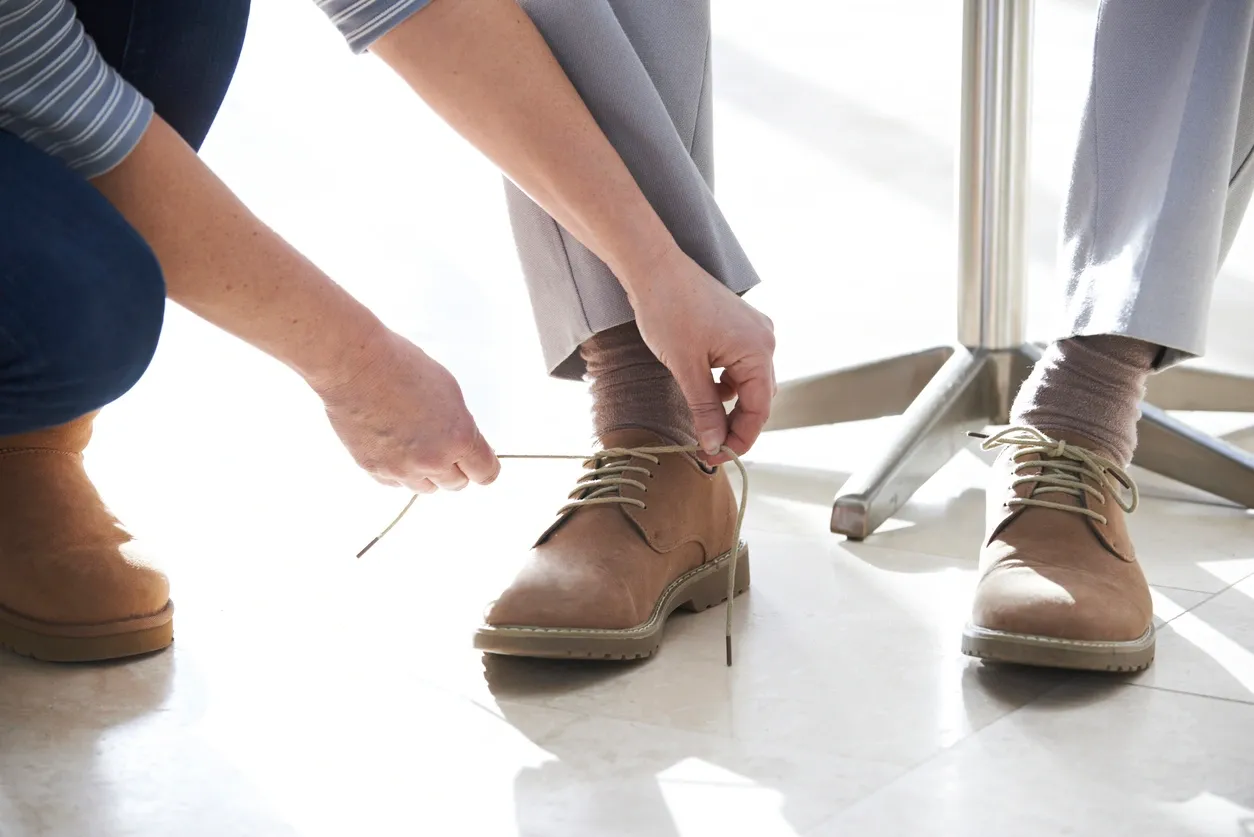
Why Choose a Caregiver Agency for Seniors and the Disabled
January 19th, 2022aging in place, Alzheimer's Care, Caregiver Service, Companion Caregiver, Dementia Care, Elderly Care, Home Healthcare, In Home Care, Long Term Care, Outdoor Activities for Seniors, Polish Care Services, Retirement Plans for Seniors, Senior Care Services, Spring Activities, Summer Activities for Seniors, Uncategorized,
Caring for a loved one that is elderly or disabled is not easy. More often than not, family caregivers are trying to balance work and other family obligations on top of their caregiver duties. This can result in stress and eventually caregiver burnout. Hiring a professional caregiver can help alleviate some of this stress. But the process of finding and hiring a caregiver is overwhelming. This article provides an overview of what you need to know about hiring a caregiving agency.
Types of Professional In-Home Care
The type of professional in-home care you and your loved one chooses depends entirely on their individual needs. Many people frequently start with what is known as hourly care services. A professional caregiver is hired to come for a set number of hours each day or on certain days depending on the need. Some families use hourly service as a way of filling in gaps of time when someone is unable to be home. A disabled person may want a caregiver to come help them with personal care in the morning and evening, and choose hourly care for that reason.
Live-in caregivers provide live-in care services and are with the clients they serve because they live in the home with them. A family member or client will choose this option if they do not have a solid care support system close by, or if they require professional support beyond what family and friends can provide.
How Professional Caregivers Assist Clients
When people hear the word “caregiver” they traditionally associate the term with a person who helps a person bathe, dress, eat, go to the bathroom and walk around. These are known as activities of daily living or ADLs and fall under the category of personal care. While this is the most common type of assistance that caregivers offer clients, it’s far from the only type of care or the end of a caregiver’s duties. Care types include:
Personal care: Assistance with ADLs, meal preparation, laundry, and light housekeeping, medication reminders.
Companion Care: Assistance with tasks like getting mail, feeding pets, transportation, errand running, and activities like walking, playing games or attending events.
Homemaking Services: Homemaking services focus on activities around the home such as light cleaning, making the bed, dusting, doing laundry, and organizing as necessary.
The Advantages of Hiring a Caregiving Agency
Some people choose to hire professional caregivers on their own. But for the uninitiated, hiring a professional caregiving agency is beneficial. Caregiving agencies hire trained caregivers that they have vetted and the caregivers that they send out are licensed, insured, and bonded.
A professional caregiving agency is also well-versed in figuring out how to best assist clients. This is why an agency often begins with an evaluation that identifies what a client needs assistance with. The results of this evaluation may identify more areas of assistance than what is initially sought. This data will help the family and client determine what type of care they want. And the agency will also have a better idea of the caregiver they may assign to assist.
Polish Care Services is a professional caregiving agency that helps clients with their personal care and companion care needs. To learn more about the services we provide, reach out to us by contacting 860-255-8278 today.
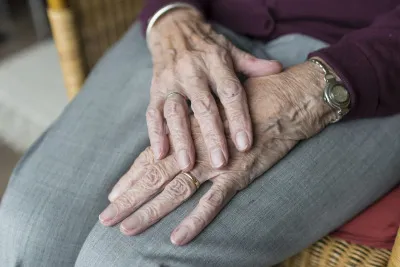
Aging in Place: 7 Solutions for Seniors Safety
November 17th, 2021aging in place, Alzheimer's Care, Caregiver Employment, Caregiver job, Caregiver Service, Companion Caregiver, Dementia Care, Elderly Care, Fall Activities for Seniors, Hire CNA, Hire HHA, Hire PCA, Home Healthcare, House Cleaning, In Home Care, Long Term Care, Outdoor Activities for Seniors, Polish Care Services, Retirement Plans for Seniors, Senior Care Services, Spring Activities, Summer Activities for Seniors, Uncategorized,
It’s hard to watch your parents age when you’re not nearby to help out, but there’s a lot family members can do to keep seniors safety even when they can’t be there themselves. From installing technology to hiring professional help, here are seven ways you can ensure your loved one is cared for every day.
1. Motion-Activated Lighting
Finding their way through a dark house at night leaves seniors vulnerable to falls, which can hold grave consequences for the elderly. Even when it’s not dangerous, walking across the room to switch a light on or off is burdensome for people with mobility limitations. Replacing light switches with motion-activated lighting ensures a senior’s path is always illuminated. If automated lighting is out of the budget, add LED nightlights in essential areas and replace toggle switches with arthritis-friendly rocker switches.
2. Medical Alert Devices
For seniors who live independently, falling at home poses a life-threatening risk. Medical alert systems get emergency services to seniors in need as quickly as possible. While some devices require the user to activate the alert, the best ones automatically detect a fall and contact emergency services on the wearer’s behalf.
3. Video Chat
While phone calls are a great way to stay in touch, video chatting adds a level of connection that voice alone can’t. An easy-to-use smartphone or tablet with a camera lets the elderly converse face-to-face with family members and caregivers. In turn, those people have an opportunity to visually assess a senior’s wellbeing, rather than relying on self-reporting alone.
4. Automated Pill Dispensers
According to the Kaiser Family Foundation, the average adult over 65 fills more than 20 prescriptions every year. While some of those are short-term prescriptions, many are intended for long-term use. Keeping up with a heavy medication regimen is challenging for anyone, but especially for seniors safety whose cognitive abilities are changing with age. The best way to ensure medications are taken as intended, and to prevent prescription drug misuse, is to use automated pill dispensers that remind seniors when each medication is due.
5. eHealth Tools
Sometimes, a senior’s long list of medications includes drugs that are contraindicated or multiple prescriptions treating the same condition. This happens when doctors aren’t fully informed about a patient’s medical history, and it can lead to a potentially fatal drug interaction. Rather than typing up a new medication list every time a dose changes, seniors can store drug details, test results, and more all in one place using a personal health record app. HealthIT.govoffers recommendations on PHR apps worth trying.
6. Home Security
Whether you’re worried about a senior citizen with Alzheimer’s disease wandering away from home or a stranger breaking in, a home security adds peace of mind when you’re not around to keep an eye on the senior in your care.
7. In-Home Help
Despite advancements in technology, sometimes there’s just no substitute for human touch. Hiring in-home services to help with housekeeping, cooking, and other daily requirements reassures family that their loved one’s needs are being met. For seniors who need basic assistance and want to remain at home, these services are an attractive option. And, depending on the amount of care required, they can be a more affordable option as well. For example, in Washington D.C., a resident could spend $3,000 on care services and $2,787 on their mortgage, and still spend less than the $5,933 it would take to live in an assisted living facility.
According to the Department of Housing and Urban Development, the vast majority of American seniors safety want to age in place rather than moving to a care facility. However, preserving independence means acknowledging and accommodating the changes that come with age. While there’s no catch-all solution that will work for everyone, these seven ideas are a big step toward keeping seniors safe at home.
Author June Duncan for Polish Care Services
#in-home help technology #home security #alzheimers #ehealthmedical alert devices #Senior Services #senior safety #senior health #solutions for senior safety #aging in place

Caring for Seniors: Making the Holidays Special for Seniors
November 12th, 2021aging in place, Alzheimer's Care, Caregiver Employment, Caregiver Service, Companion Caregiver, Dementia Care, Elderly Care, Fall Activities for Seniors, Home Healthcare, In Home Care, Long Term Care, Polish Care Services, Senior Care Services, Summer Activities for Seniors, Uncategorized,
The holidays are all about spending time with friends and family. But it is not uncommon for this
time of year to be difficult for older loved ones. Distance from family, loss, and ongoing medical
issues may make celebrating the holidays more difficult. This article discusses how to make this
upcoming holiday season special for seniors.
Activities to Celebrate the Holiday at Home
There are multiple ways to start celebrating the holidays at home. Consider making pomanders
with oranges and cloves. A long-term caregiver can assist with this activity by helping to create a
ring of cloves using a rubber band and a wooden skewer to create the pattern. Listen to some old
favorite holiday tunes while working.
When grandchildren come over or make a video call, prompt them to ask about some of your
loved one’s favorite holiday memories. When the weather turns chilly, think about having a nice
chat over coffee or tea. Perhaps this chat can happen while cookies bake in the oven. Don’t
forget the cards. Have an older loved one write them and then address the envelopes on
their behalf, or vice versa.
Activities Outside the House
Getting out into the community and spending time with others is a great way to spend the holiday
season. Prioritize activities that are outdoors and avoid crowds this year to make sure older loved
ones stay safe. Drive around the neighborhood and admire the decorations and light
displays that neighbors set up. If the weather is suitable and not too cold, think about taking a walk
to the park or around the block.
Merchants are encouraging people to shop for holiday gifts early this year. If an older loved one
wants to shop in person, go early to avoid the crowds, or find out if stores hold special senior
hours.
Remember to pace all home and outside holiday activities to meet a senior’s needs. If your loved
one would benefit from extra help this holiday season, consider hiring a live-in caregiver from
Polish Care Services. Reach out to us today.
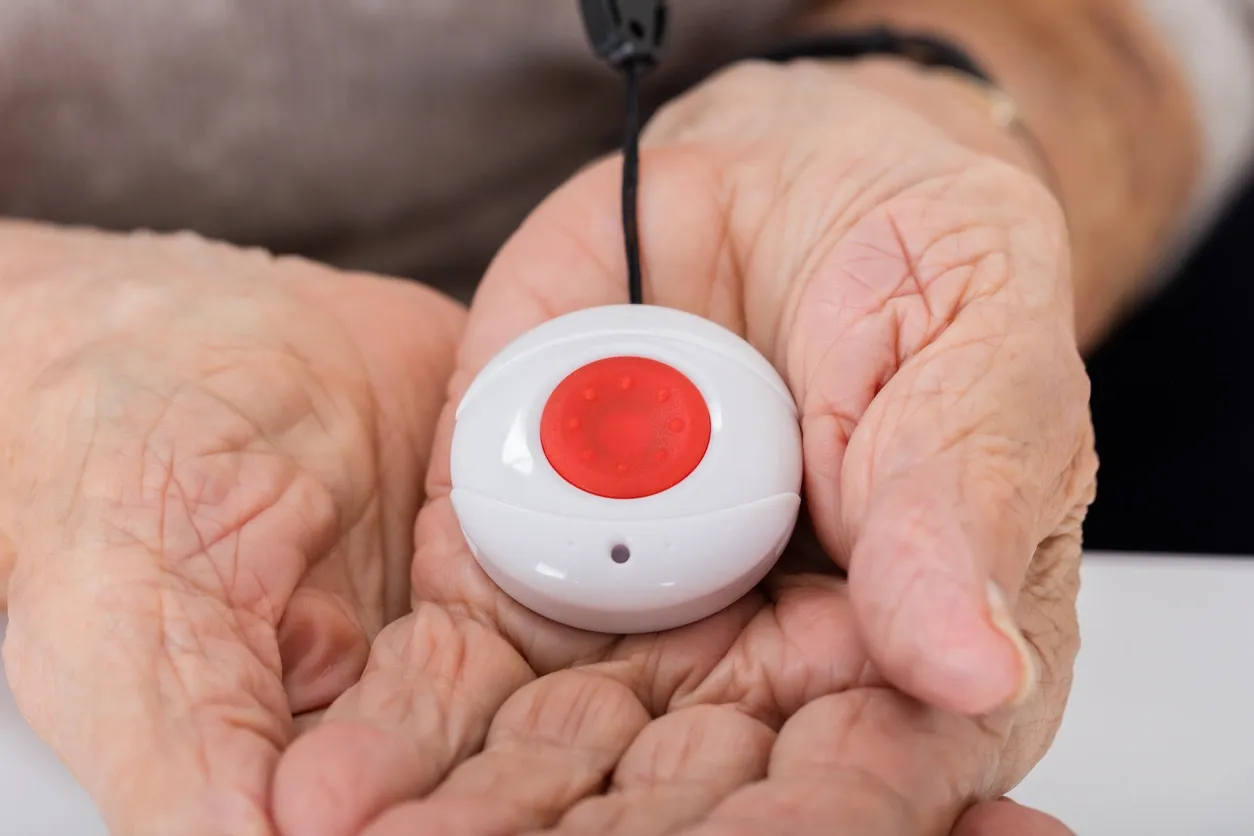
Caring for Seniors: Technologies to Make Seniors Life Easier
October 27th, 2021aging in place, Alzheimer's Care, Caregiver Employment, Caregiver job, Caregiver Service, Companion Caregiver, Dementia Care, Elderly Care, Fall Activities for Seniors, Hire CNA, Hire HHA, Hire PCA, Home Healthcare, House Cleaning, In Home Care, Janitorial Service, Long Term Care, Outdoor Activities for Seniors, Polish Care Services, Polish Care Services Trademark, Retirement Plans for Seniors, Senior Care Services, Spring Activities, Summer Activities for Seniors, Uncategorized,
Technology has made life easier for everyone, including seniors. And it’s not simply limited to smartphones with accessibility options, either. There are a variety of devices and applications designed to help assist older loved ones with many issues. This post offers an overview of technology options available to seniors and their families.
GPS
For seniors who live alone or have dementia or Alzheimer’s, knowing where they are is crucial. GPS services like Find my Phone on iOS are sharable with family members or caregivers. If a loved one falls while out on a walk, the GPS on the phone can indicate an issue. Smartwatches like Apple Watch now also feature fall detection. If wandering is a concern, GPS trackers come in the form of wristbands. Trackers can be put in bags and in items of clothing, and they connect to apps that can be remotely monitored by a family member or caregiver.
Medication Management
Medication management is a common challenge for seniors, even if a long-term caregiver sets out medications in advance. Automatic medication dispensers are programmed to dispense and remind seniors to take medications at the appropriate time. This is a great option for older loved ones who have a part-time caregiver.
Cameras
Cameras that are accessible via smartphone are a crucial tool in the prevention of elder abuse. Family members can set them up to watch over loved ones and make sure are safe at home. Live-in caregivers can also be granted access to them to watch over their clients in another room.
Applications
Health tracking has been made so much easier with smartphone applications. In addition to built-in health apps on smartphones, seniors can download specialty apps like Kardia Mobile to take an EKG of their heart and send it to their doctor. Other devices like insulin meters can also be monitored via Bluetooth on a smartphones.
In addition to health, seniors can do all sorts of things with their smartphone. They can keep up with religious activities, have apps read books to them, and stay informed with a multitude of news apps.
Technology is a good first step to help monitor a senior if they aren’t ready for a caregiver. When your loved one needs a little more help than technology alone can provide, consider hiring a caregiver from Polish Care Services. Reach out today to learn more about our services!
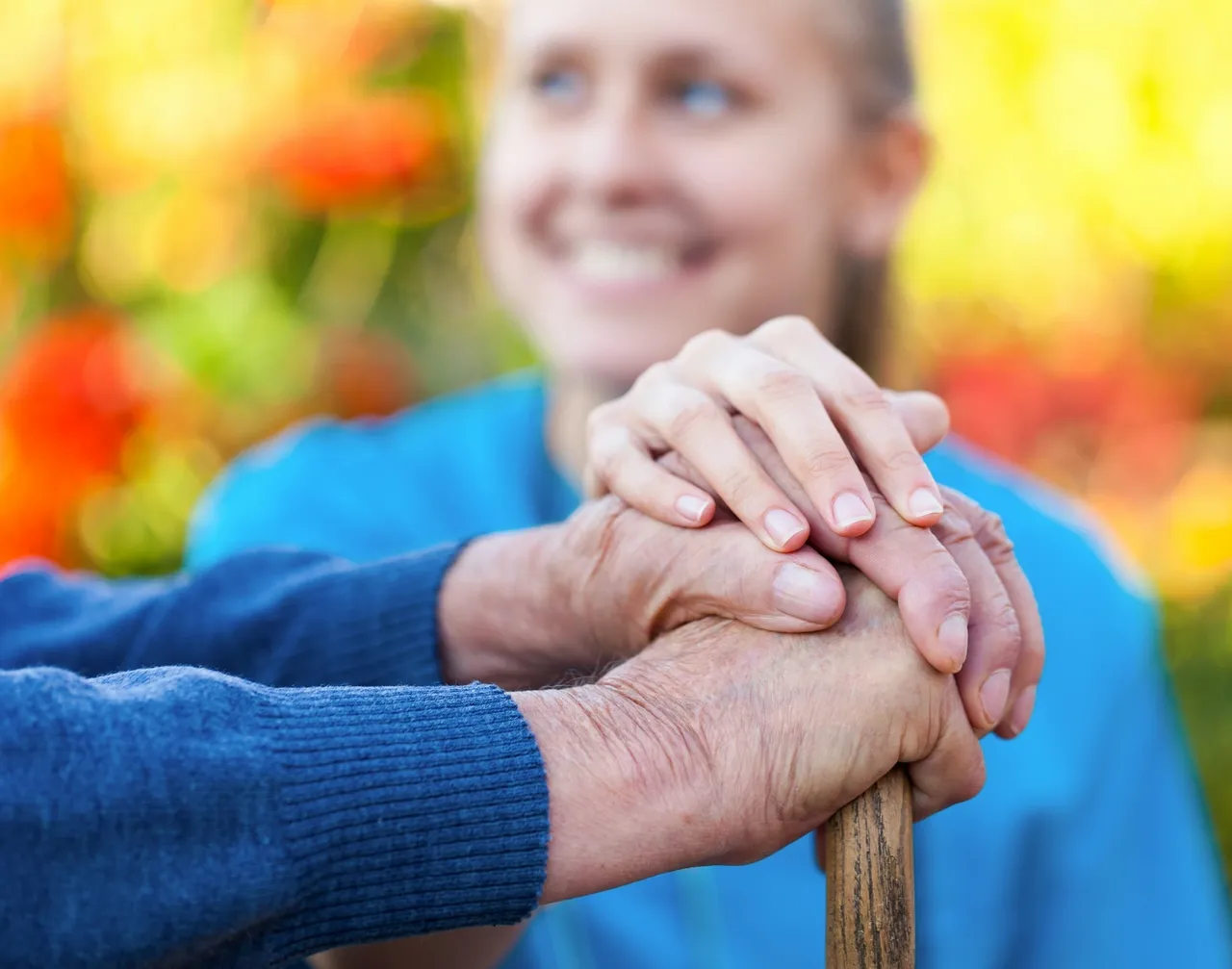
Caring for Seniors: Fall Favorites for Seniors
September 27th, 2021aging in place, Alzheimer's Care, Caregiver Employment, Caregiver job, Caregiver Service, Companion Caregiver, Dementia Care, Elderly Care, Fall Activities for Seniors, Hire CNA, Hire HHA, Hire PCA, Home Healthcare, House Cleaning, In Home Care, Janitorial Service, Long Term Care, Office Cleaning, Outdoor Activities for Seniors, Polish Care Services, Polish Care Services Trademark, Retirement Plans for Seniors, Senior Care Services, Spring Activities, Summer Activities for Seniors, Uncategorized,
Fall is just around the corner, which means cooler weather, warm sweaters, and pumpkins are on the way. While the season is well known for the use of pumpkin spice, it’s also a time full of activities. Here are several social activities to enjoy with a loved one in your life.
Create Costumes
Fall is home to Halloween, which means dressing up in fun costumes. Seniors can make their costumes with an in-home caregiver just for fun or for an upcoming party. It’s a great way to engage creative skills while having fun. It can also bring up memories of past Halloween holidays, which can be shared with friends and family.
Carve Pumpkins
Pumpkin carving is another fun fall activity that you can do with a loved one. It’s not as easy as it may appear. But with the right preparation, it can be a fun and satisfying experience. Tips to carve the perfect pumpkin include:
– Get a fresh pumpkin with a thick stem, and a flat bottom. Make sure there are no bruises.
– Scoop out all the pulp and thin out the area where the design or face goes to an inch thick to make the shell easier to pierce.
– Draw out your pumpkin’s design first before you carve and use it as a pattern.
Make Fall Crafts
Crafts help to celebrate fall and keep seniors engaged at the same time. Some use things from nature, while others mimic the colors of fall. Try projects like:
– Take leaves from your front yard and spray them with copper spray paint or another metallic color. Use them for a fall wreath or other crafts to dress them up.
– Make a hanging display with your crafts. Coat your crafts with glitter and let them dry. Apply a ribbon to each piece with a hot glue gun and hang them up.
– Press fall leaves between the pages of a book. Get two pieces of glass cut to the desired picture size and place the leaves between the glass once dry to hang on the wall.
If you’re looking for a way to keep your loved one engaged this fall, turn to Polish Care Services. Our expert care staff will match you with a caregiver just in time for fall. Reach out to us today!
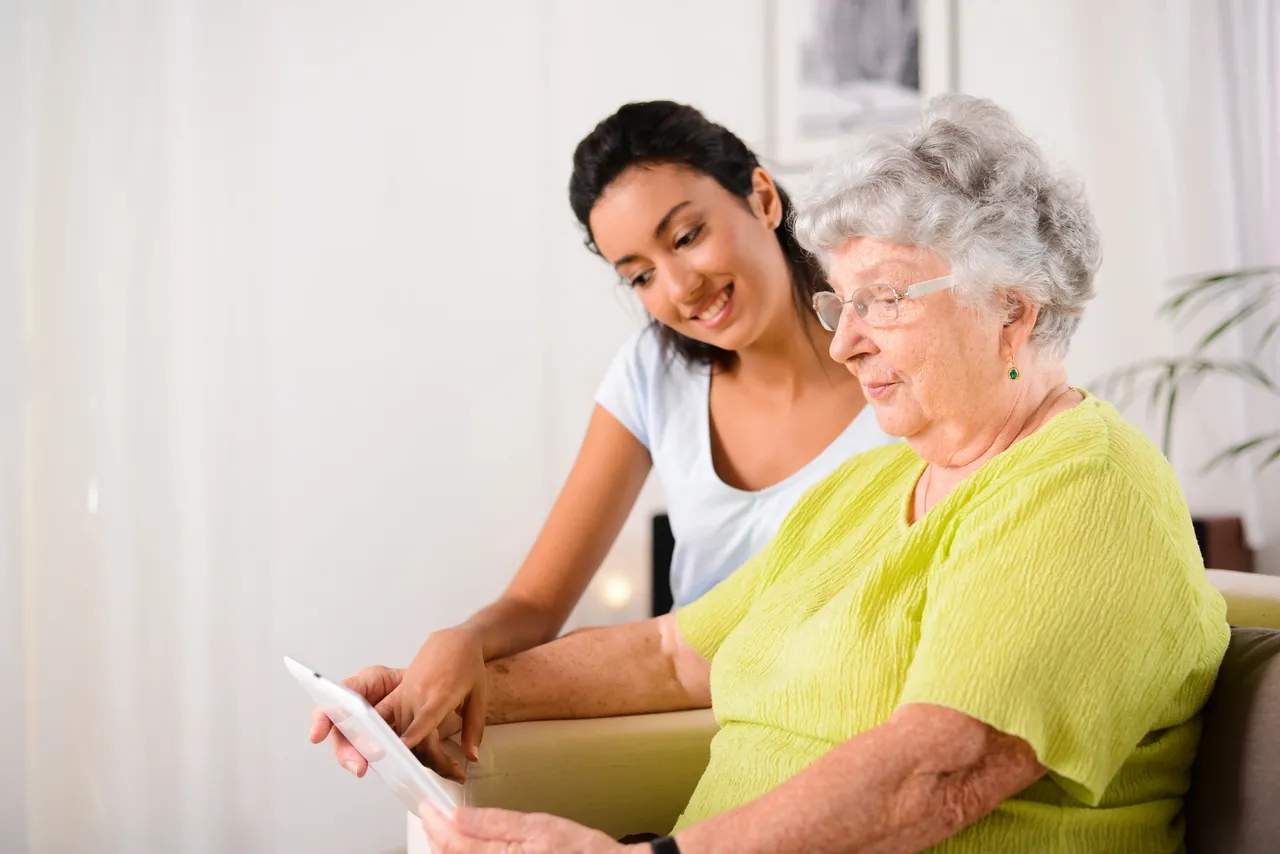
Caring for Seniors: Benefits of a Longterm Live In Caregiver
August 31st, 2021aging in place, Alzheimer's Care, Caregiver Employment, Caregiver job, Caregiver Service, Companion Caregiver, Dementia Care, Elderly Care, Fall Activities for Seniors, Hire CNA, Hire HHA, Hire PCA, Home Healthcare, House Cleaning, In Home Care, Janitorial Service, Long Term Care, Office Cleaning, Outdoor Activities for Seniors, Polish Care Services, Polish Care Services Trademark, Retirement Plans for Seniors, Senior Care Services, Spring Activities, Summer Activities for Seniors, Uncategorized,
Hiring a caregiver for your loved one is not an easy decision. It often comes with questions such as what type of care do they need, and how often does the caregiver need to come? Live in caregivers provide a constant level of care and are with your loved one constantly since they live in the house with them. If you’re thinking about whether live-in care is the right option for your loved one, keep reading to learn about its benefits.
Better Care and Reliability
One of the most common problems seniors face when they need longterm care is having a caregiver they can count on to be there. Caregivers who live outside the home and care for other clients may miss a shift from time to time. Live in caregivers don’t have this problem since they are with their clients constantly, except for time off. They also provide better care to their clients overall because the caregiver will get to know them over time and give them the personalized care they deserve.
Familiarity
Bringing a caregiver into the home to care for an older loved one is a major step, especially if you live further away and cannot be there for your loved one. Finding the right live in caregiver helps ease these concerns. Having a constant companion around the home will provide reassurance for an older adult and assure you that your loved one is receiving the care they need. Additionally, if they have an accident, someone will be there to help them immediately.
Maintain Independence
Seniors often fear that bringing in a caregiver will mean losing their independence. Hiring a live in caregiver will help them preserve their independence instead of losing it. Because a caregiver who lives with their client gets to know them personally, they will assist only when your loved one needs help. Over time, they will understand how their client lives at home, what they can do independently, and what they struggle with.
To learn more about the benefits of long-term caregivers who live with clients, reach out to Polish Care Services. Our staff of care experts will be happy to find the right care match for your loved one.

Caring for Seniors: Outdoor Summertime Favorites for Seniors.
August 9th, 2021aging in place, Alzheimer's Care, Caregiver Employment, Caregiver job, Caregiver Service, Companion Caregiver, Dementia Care, Elderly Care, Fall Activities for Seniors, Hire CNA, Hire HHA, Hire PCA, Home Healthcare, House Cleaning, In Home Care, Janitorial Service, Long Term Care, Office Cleaning, Outdoor Activities for Seniors, Polish Care Services, Polish Care Services Trademark, Retirement Plans for Seniors, Senior Care Services, Spring Activities, Summer Activities for Seniors, Uncategorized,
There’s never been a better time to go out and get moving now that summer is upon us. Staying active is one of the best things seniors can do for their physical and emotional health. Here are some favorite outdoor social activities that seniors can do this summer.
The Benefits of Getting Outdoors
Outdoor activities are particularly beneficial to seniors because they receive exposure to vitamin D. Vitamin D helps to improve brain and bone health. Leaving the house also gives seniors the opportunity to socialize with other people, which gives them a social and emotional boost.
Go on a Picnic
Picnics are one way to get out in the fresh air. Seniors can take a comfortable seat in the shade, enjoy some delicious food and watch people enjoy the summer sun. Make sure they wear sunscreen and drink plenty of water or non-sugary or alcoholic liquids to stay hydrated.
Take a Walk
Moving is vital to seniors, but it can be more difficult to do as they get older due to physical limitations. Walking on a flat familiar surface with a family member, friend, in-home caregiver, or a pet is a good way to move around during the summer without overdoing it.
Go for a Swim
Swimming is another activity that gets seniors going without overexerting themselves. This is a low-impact activity that is easy on the joints. Being in the water reduces the weight put on the legs while moving, which is why it is easier to move around. Depending on their ability level, seniors can go to classes at their local community pool. But there are also rehabilitation pools seniors can go to that are specially adapted for people with physical challenges.
Watch a Sporting Event
Summer is the best time to watch sports. Get your loved one out to watch a baseball game or a soccer match. Whether it’s a professional game or a grandchild’s league, set up a comfortable place for a loved one to watch the action and bring along a few snacks for a nice day out.
If your loved one could use a companion to help them get outdoors and enjoy summer activities, reach out to Polish Care Services. Our expert care staff will be happy to assist you. Reach out to us today!
